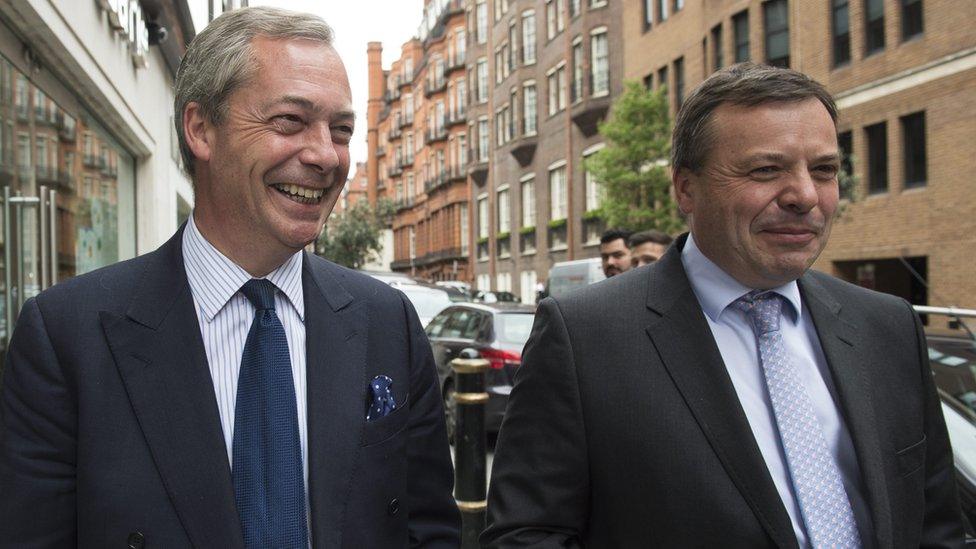EU referendum: New 'exit' group launches its campaign
- Published
- comments
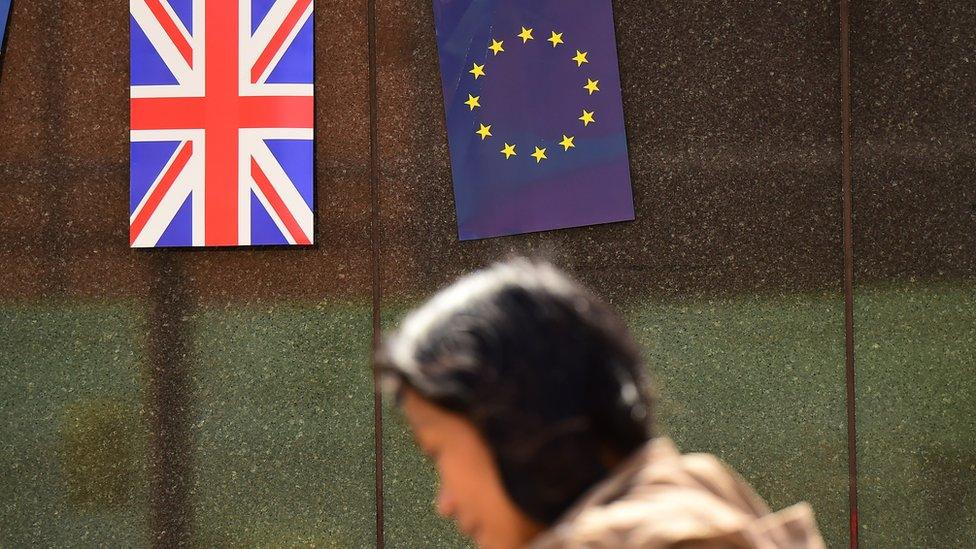
A cross-party campaign to take the UK out of the EU has been launched, with one of its key backers saying it can be a "unifying force" for Eurosceptics.
Vote Leave, external is made up of Conservative, Labour and UKIP MPs and donors.
It is competing with a rival group, UKIP-backed Leave.EU, external, to be the official Out campaign in the referendum promised by the end of 2017.
David Cameron is to discuss his planned EU reforms with German Chancellor Angela Merkel at Chequers later.
'Take control'
Vote Leave, whose supporters include Labour's Kate Hoey and UKIP's Douglas Carswell, says it wants to negotiate a new deal based on free trade and friendly co-operation.
The group is funded by people of different party affiliations, such as the City millionaire and Tory donor Peter Cruddas, Labour's biggest private backer John Mills and former UKIP treasurer Stuart Wheeler.
Its core message is about sovereignty, with "take control" the main slogan. It is planning to spend about £20m.
Ms Hoey called for an end to the "supremacy" of EU legislation over UK law, saying: "If we vote to leave, then the £350m we send to Brussels every week can be spent on our priorities like the NHS".

Analysis
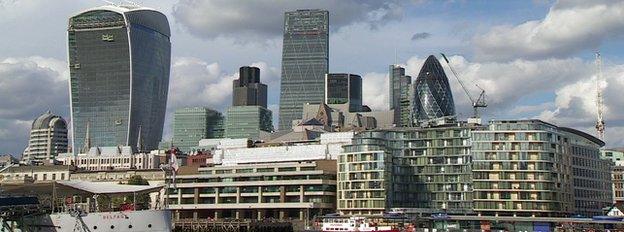
The impact on the business world will feature strongly in the EU referendum debate
By Laura Kuenssberg, BBC political editor
The campaign's argument is simply that the EU has too much control over too much of our lives.
But stand by for clashes over how much money we get back, compared with what we put in.
The arguments over whether we really gain or lose economically will be a central strand of the referendum debate, with the government, most of the Labour Party, the SNP, the Liberal Democrats and much of the business world pressing the case that the rewards of being in the EU are much greater than the costs.
But Vote Leave has money, campaign muscle, a plan to build a politically broad-based group, and a clear message.

The Electoral Commission has yet to designate the official campaigns on either side of the EU debate.
The chosen groups will benefit from increased spending limits of £7m during the campaign period, campaign broadcasts and a free mailout to households.
They all get access to public meeting rooms and to the electoral register, and are entitled to public grants of up to £600,000.
'One-horse race'
The commission says , externalit will choose the campaign which represents "to the greatest extent those campaigning for that outcome".
UKIP has said it will stand "hand in hand" with the Leave.EU group, which party leader Nigel Farage has hailed as a "show of unity" of anti-EU groups.
Mr Farage welcomed the formation of Vote Leave, which is backed by the Business for Britain and Conservatives for Britain groupings.
He said he supported their "pro-business arguments" and that UKIP had been making them for "over 20 years".
"But we have to get outside of Westminster to reach millions of people who don't normally vote and for whom controlling our borders and having pride in our country are the biggest issues," he said.
Mr Farage said the two campaigns were "aiming at different audiences" and added: "Ultimately, I hope that we have one campaign that operates on a number of levels."
Explaining his decision to back a different group to his leader, Mr Carswell, UKIP's only MP, told BBC News it would be "quite wrong" for the party to only back one group.
He said the battle to be chosen as the official No campaign was a "one-horse race", with Vote Leave "almost certainly" going to be selected.
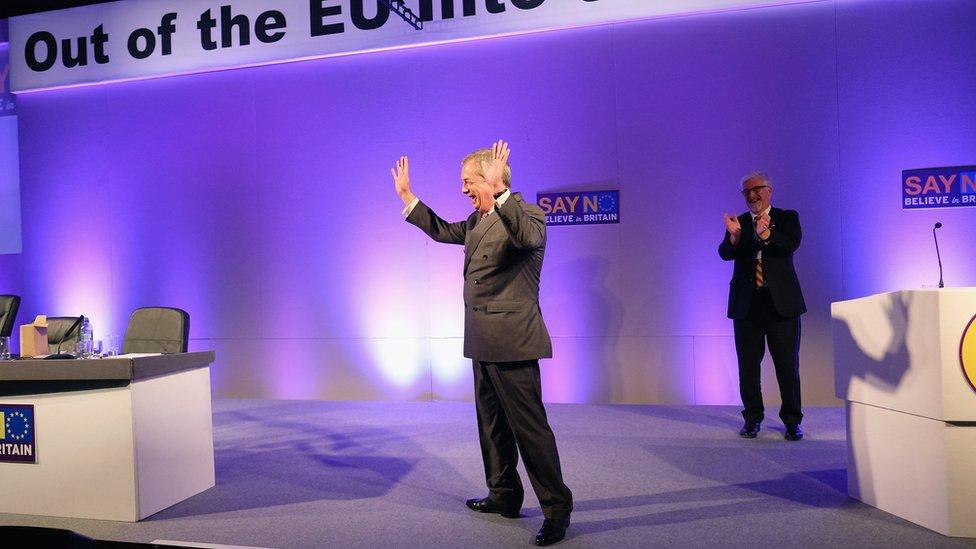
A separate EU exit group was launched at UKIP's conference
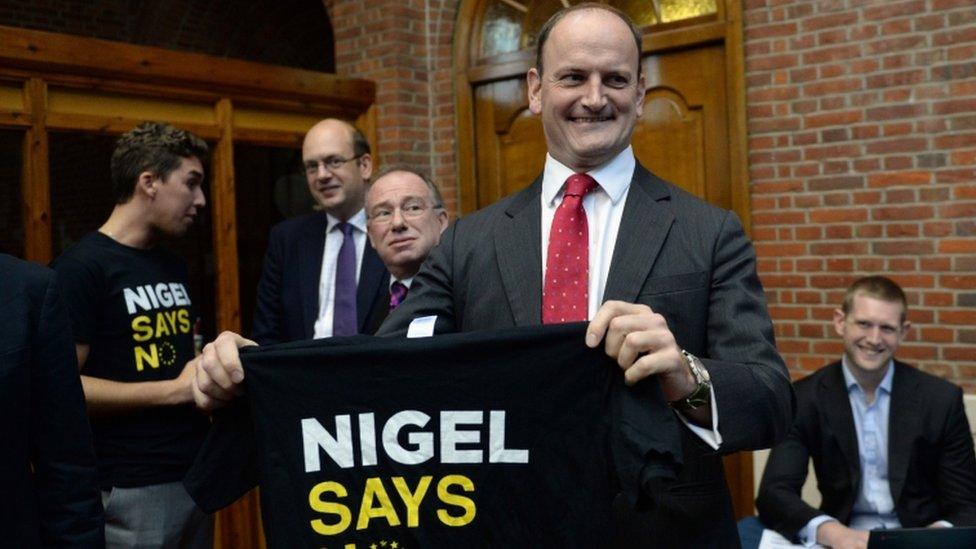
UKIP MP Douglas Carswell is backing the new group
Asked about the two rival camps, he said the campaign to leave was "going to have one or two tensions", saying these could be managed, and predicted Vote Leave would be a "unifying force".
Mr Carswell also said it was "only a matter of time" before the two campaigns rolled into one.
Tory MP Steve Baker, co-chairman of Conservatives for Britain, said his group supported Mr Cameron's attempts to reform the EU, but added: "We also support the creation of a professional cross-party campaign that can fight the referendum if the EU does not give the PM fundamental change."
The In Campaign, which wants the UK to remain a member of the EU, said Vote Leave had launched, external "with deceptive claims and old assertions".
The group's deputy director Lucy Thomas told BBC News her campaign would be officially launching "very soon" and would be "explaining the benefits" of EU membership.
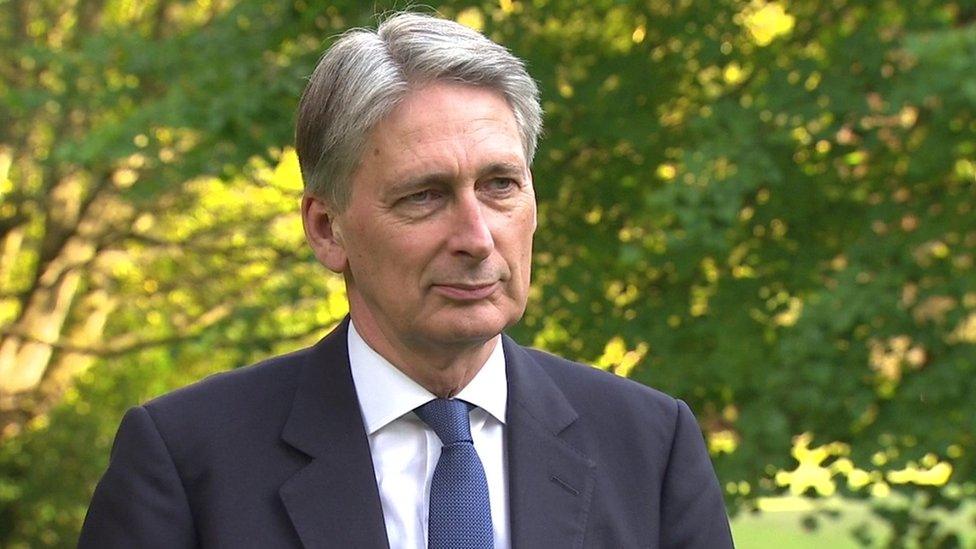
Foreign Secretary Philip Hammond said he would not comment on the individual campaigns "or the people behind them".
The government, he said, was focused on renegotiating Britain's relations with the EU "so we can deliver a better deal for the British people".
He said he was "confident" reform could be achieved but added that if not "we rule absolutely nothing out", saying: "We will have to deal with that situation when we come to it."
No date has yet been set for the referendum on Britain's membership of the EU but David Cameron has promised to hold the vote by the end of 2017.
The prime minister has said he will campaign for Britain to remain in the EU if he secures the reforms he wants.
He will use his meeting with Mrs Merkel to discuss some of his demands, which include an opt-out from an EU ambition to forge an "ever closer union" of people across Europe.
He will also try to get restrictions on welfare benefits - in particular, tax credits - for migrants and more powers to block or opt out of new EU laws.
- Published30 December 2020

- Published14 May 2015
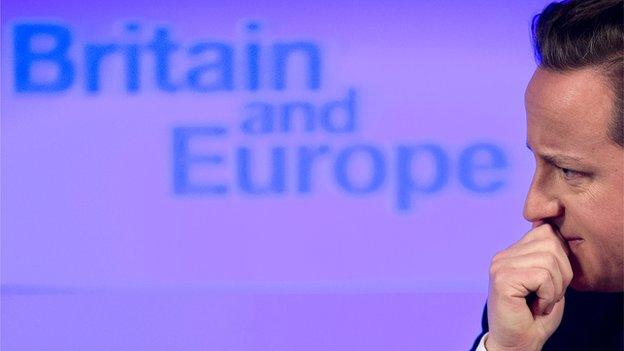
- Published1 October 2015
